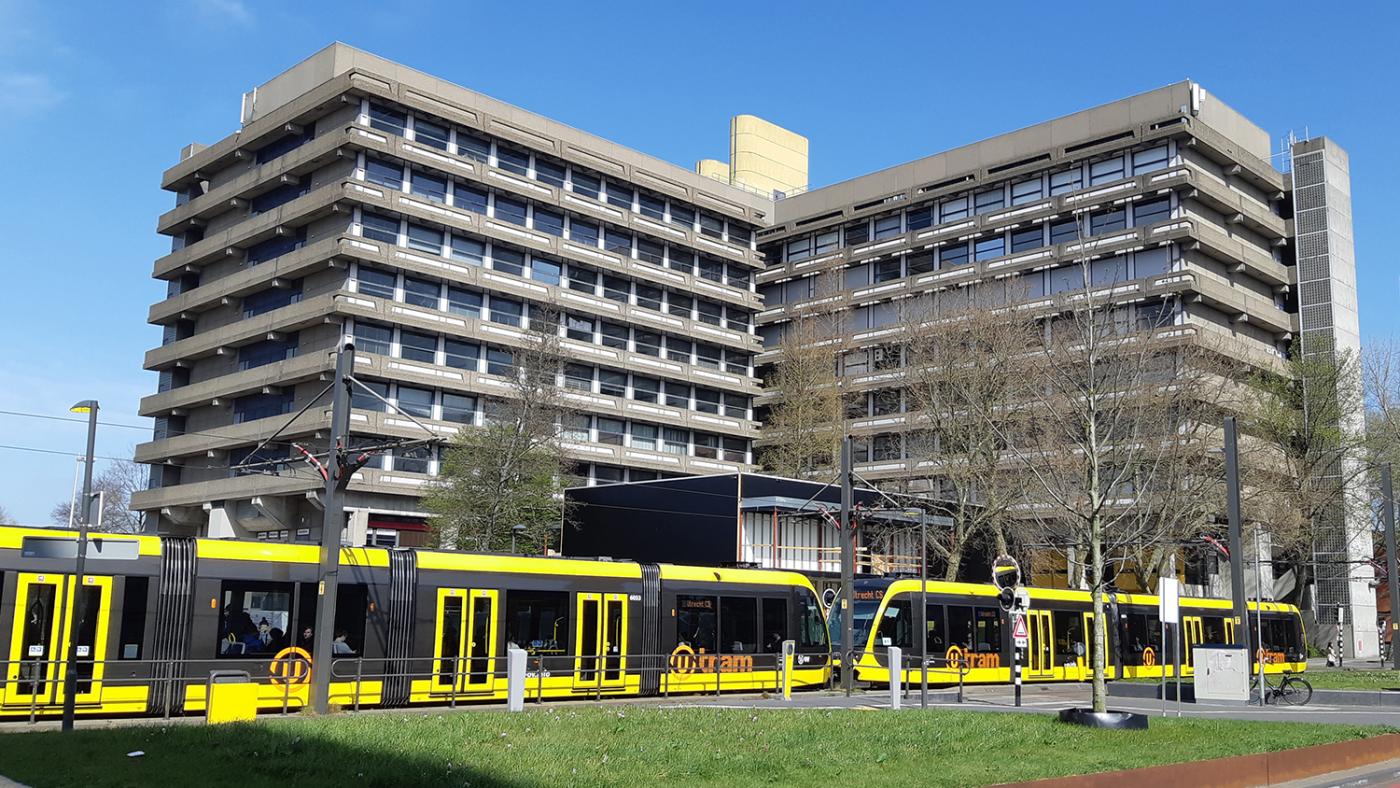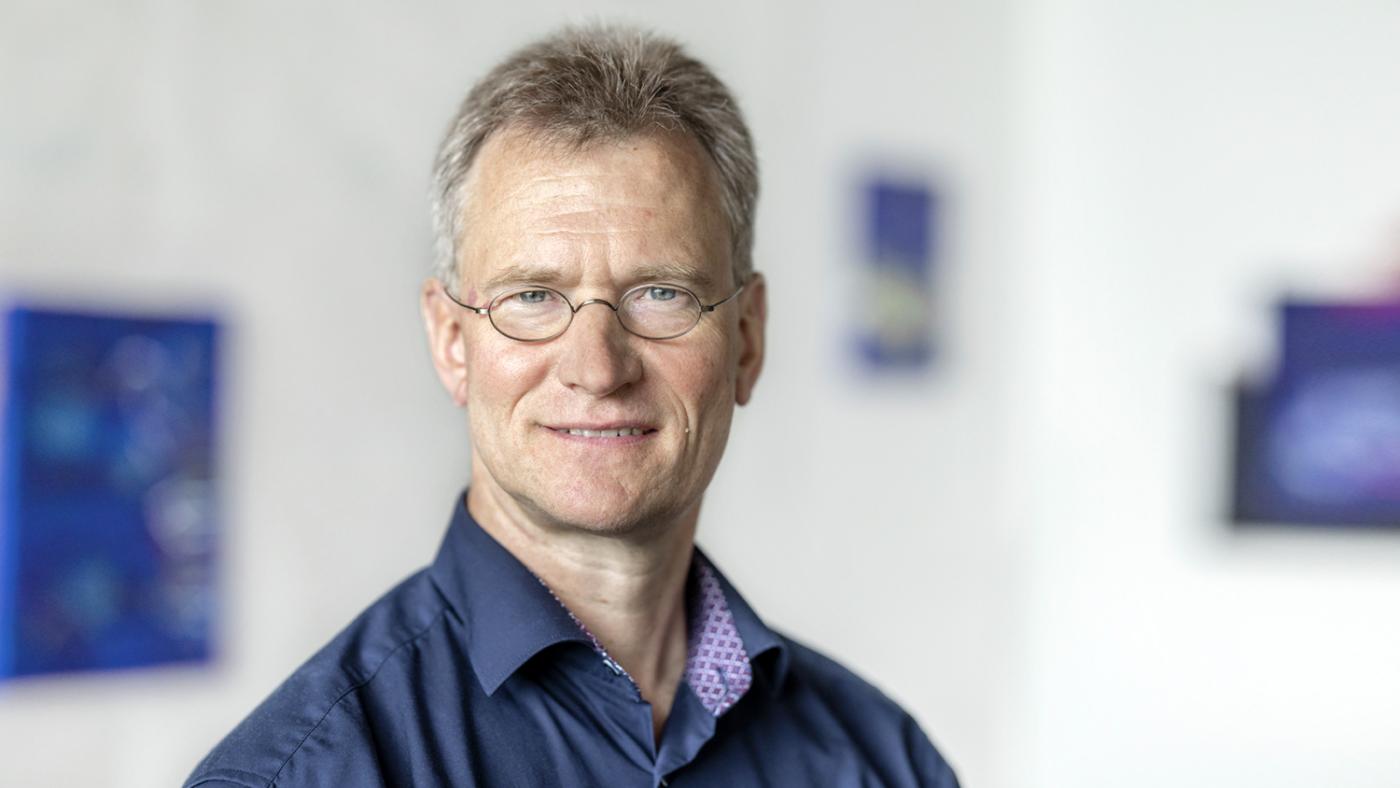Faculty commissioned inquiry following indications inappropriate behaviour
Demanding work culture seems to take its toll on Chemistry

Problematic behaviours siuch as gossiping and bullying are a problem in the Chemistry Department of the Faculty of Science. And that's not to mention the high workload, hierarchical relationships, cultural differences and lack of leadership skills that burden many of its employees.
That's the conclusion drawn by a so-called "signal study" carried by two external experts last autumn. They surveyed 74 of the department's 325 employees about their social and psychological wellbeing in the workplace.
The study aimed to provide more insight into recent signals and reports of inappropriate behaviours. It was meant as an assessment of how employees experience their work situation, not a quest to find out the truth. Therefore, no adversarial procedure followed.
Half of respondents feel victimised
The researchers presented their findings to all department employees a week and a half ago. Seventy-five percent of respondents had examples of intimidation, aggression or bullying to share. Nearly half of them feel victimised themselves.
The problems do not arise to the same extent or in the same way across the whole faculty. The report only outlines what is going on with chemists. Details about specific complaints and allegations have been omitted, as have figures on the extent of the problem and the number of employees who have complained (in most cases). The ten sections will soon be provided with specific information about what has come to light at their organisational unit.
Earlier signs
According to Dean Isabel Arends and Department Chair Stefan Rüdiger, many were surprised, perhaps even dismayed, by the first results. “Everyone knows that social safety is not a passing thing, but people often assume that problems occur elsewhere and not with 'us’,” says Arends. But, to them, the results didn't come as a big surprise. Arends: “The whole reason for commissioning this investigation was the number of reports we'd received from people who did not feel comfortable in the workplace.”
“In addition, the latest employee monitor clearly shows that many employees often find the behaviours of certain people working in the department unpleasant. We try to handle every case as best as possible. Still, I really wanted to know the scope of the situation. What was going on? We now have a much better idea thanks to the research.”
Summary proceedings
Until now, outsiders to the Chemistry Department only knew about the complaints of inappropriate behaviour because a PhD candidate from the Nuclear Magnetic Resonance (NMR) research group instituted summary proceedings against the university.
Last spring, department chair Rüdiger denied the PhD candidate access to the lab where he used to work because his behaviour made several colleagues uncomfortable. He allegedly made discriminatory remarks in a less-than-friendly manner. In September, the court ruled that the university was entitled to impose such a sanction, even though it had not proven yet that the PhD candidate in question was causing problems. A ruling by the university’s committee on interpersonal integrity is still pending. The PhD candidate will be awarded their PhD very soon.
According to Rüdiger, this is just one of several cases in which employees didn't feel safe – although it is the most extreme example. The department was already planning on commissioning a "signal study" when this happened. The two researchers who carried out the study also mapped the feelings and experiences of PhD candidates working for the NMR group. According to Rüdiger, these two studies were completed independently of each other.
“As a manager or director, you must always act immediately when such incidents happen, but you must also gain insight into underlying patterns. Only then can you do something to prevent similar incidents in the future.”

Isabel Arends photographed by Ivar Pel. Photo: Utrecht University
Complex relationship
The researchers invited over a hundred employees from different areas for a talk, of whom 59 people responded. In addition, 15 employees asked to be interviewed themselves. They didn't only talk about feeling unsafe due to their colleagues' behaviours. The report, which DUB has accessed, also reveals that the complex relationship between PhD candidates and their supervisors can often lead to problems.
Roughly half of the 325 employees of the Chemistry Department are PhD candidates. Many of them feel overly dependent on their supervisors, don't know exactly what is expected of them, and don't dare to discuss safety complaints with their supervisors out of fear of repercussions.
Moreover, research leaders often have little time to pay attention to such conversations as they are weighed down by a considerable workload and pressure to perform, which leads them to intentionally or unintentionally impose that same pressure on the PhD candidates. Their meetings are mostly about science, not wellbeing.
Cultural problems
Furthermore, most supervisors lack the knowledge or skills to raise difficult personal issues, be it in individual conversations or as a team. The latter could be done by the mentor that is assigned to PhD candidates at the start of their research, but that doesn't always work in practice. The confidential advisor for PhD candidates is usually the one who is appreciated most.
Research teams are often comprised of members from different nationalities, which may lead to culture shock. For example, the work ethic of ambitious PhD candidates from abroad can differ from local PhD students, who are often extending their student lives. The signal study reveals that managers aren't always aware of such feelings.
All of these situations contribute to PhD students being stressed out, falling ill, or even becoming disillusioned by academia, the researchers report. One in six respondents has sought professional help recently.
Can’t compare
These are serious issues, but the question remains whether the situation at the Chemistry Department is more serious than at other departments of the Faculty of Science – and, if so, why. This is certainly not the first time PhD candidates have complained about their work environment and the tricky hierarchical relationships they have to navigate. Last month, Rathenau Institute called on universities to take better care of their young researchers.
“We can’t say that the Chemistry department differs from other departments,” admits Arends. “But we do see some risk factors in the study. The Chemistry Department has the most PhD candidates. The department is very successful in bringing in grants, which leads to a lot of work pressure. Teams are large and so are managers' responsibilities. In addition, they often work with advanced equipment that is not always available to everyone. Sometimes, they need to prioritise things in a manner that does not make everyone happy, leading some to experience it as ‘discriminatory’.”
To department chair Rüdiger, it is not relevant whether or not the situation is worse at the Chemistry Department. The same goes for whether or not the study is representative. After all, the research aimed to identify problems and gather support for a solution.
“As the department's chair, I don’t like to hear that things might be just as bad in other departments or that the employees who have never experienced any problems were less inclined to talk to the researchers. We are obliged to rely on the subjective experience of our employees and ensure that they feel comfortable. In that light, it is irrelevant whether something is ‘true’ or ‘false.'"
He continues: “It is clear that many people in our department are affected negatively by the way we work and interact with each other. We must do something about that. I’m under the impression that this goal is widely supported. The employees who attended the presentation understand that something needs to change.”

Stefan Rudiger. Photo: Ed van Rijswijk, UU
Improvement plan
Rüdiger has been commissioned by Arends to draw up an improvement plan. He will come up with the first steps this week.
In their recommendations, the researchers state that things must improve in terms of social behaviour, leadership skills and organisational structure. The department chair intends to follow two tracks. The first one is to have a team work on how the desired cultural change should take place within the department. Specific issues concerning research groups will be addressed as well.
They expect a lot of attention to be paid to managerial performance, usually referred to in the Faculty of Science as Principal Investigators or PIs. Rüdiger: “If you dive into the details of the signal study, you see that many PIs are doing well, but there are points we need to pay attention to regarding specific managers. Ultimately, we all need to work on cultural change, not just on PIs. But the PIs in question have to regain trust and that means they have to take action.”
“Science is inherently stressful and comes with a lot of pressure. This shines through in the relationship between supervisors and PhD candidates, but also in the relationship between PhD candidates and Master’s students, for example. It is the manager's job to take that pressure off the team, instead of increasing it.”
As far as Arends is concerned, the department will also pay more attention to cultural and language differences that contribute to employees feeling unsafe at work. “What language do you speak in a group of people who don't speak Dutch are present? How do we behave at a party outside of work?”
Putting out fires
In addition, according to Rüdiger, it will be necessary to look at problems that require a quick solution. He acknowledges that certain situations are complex and require regaining employees' trust. “Some fires will have to be put out in the short them.”
Respondents were sceptical about the signal survey's ability to change things. Some also stated that employees on permanent contracts have little to fear if they cross the line or do not perform.
When asked whether harsh sanctions could be applied, Rüdiger preferred not to elaborate. “But I can assure you that measures will be taken if necessary. We’ve done this recently. We expect managers to cooperate if we conclude that an improvement process is called for. Wanting to cooperate is part of being functional a work, although that is not that visible to the outside world.”
Looking in the mirror
Dean Isabel Arends acknowledges that the department is facing a major task. “The researchers told us that. It’s not a matter of putting a cultural trajectory on paper, that's it. Everyone will have to become aware of what the current situation is doing to their colleagues, particularly young ones. This may even cause them to turn their backs on academia. Of course, staying in academia is not an end in itself, but it should be a choice.”
The dean also knows that she will have to take a good look in the mirror herself. Arends has been an advocate of an inclusive and safe faculty for some time, but the report shows that this is far from being recognised by everyone. Faculty initiatives such as flyers, workshops and theatre performances to draw attention to the topic have been noticed, but seem to have little effect on what happens on the work floor. A clear vision is also lacking.
Moreover, many respondents feel that the Faculty Board (similarly to the Department Board) is far removed from the workplace. Partly because of this, Arends and her colleagues have been unable to sufficiently communicate how and where employees with complaints or problems can find help, according to respondents in the survey.
Arends: “I take that to heart, of course. The fact that employees feel distant from the Faculty board is not surprising. It’s a very large faculty that has doubled in size in the past ten years. But I have to do my best to make that clear. To propagate what has already been done to increase social safety and what is still to come.”